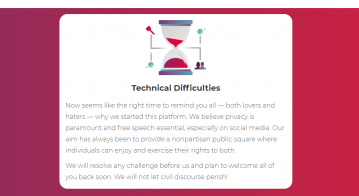What leaders can learn from Airbnb’s 2020 comeback

In 2007, designers Brian Chesky and Joe Gebbia couldn’t afford the rent on their San Francisco apartment. To make ends meet, they decided to turn their loft into a lodging space. Since there was a design conference coming to town and hotel space was limited, they set up a simple website with pictures of their lodging space — complete with three air mattresses on the floor and the promise of a home-cooked breakfast in the morning.
This site got them their first three renters, each one paying US$80, and, after that first weekend, they began receiving emails from people around the world asking when the site would be available as a platform in places like Buenos Aires, London, and Japan.
What was known initially as ‘Airbed and Breakfast’ is now Airbnb — a household name that has now surpassed Hilton Hotels in the number of nights booked. As of 2014, the platform had 10 million guests and 550,000 properties listed worldwide, along with a US$10 billion valuation — making Airbnb worth more than legacy players like Wyndham and Hyatt.
13 years after the concept was born, not only has Airbnb Inc. been listed, but that long-anticipated milestone comes just 10 months after the Covid-19 pandemic upended the travel industry, beating all expectations.
The rise in Airbnb’s stock on its debut came just a day after the share price of food delivery company DoorDash Inc doubled in its first day of trading. Now, the company has a market cap of about US$86.5 billion, more than double the valuation the company sought in the IPO just a day ago. Airbnb’s market value now exceeds that of travel giant Booking.com, which has a valuation of more than US$86 billion, and competitor Expedia that has a market cap of more than US$18 billion.
Airbnb chief executive Brian Chesky told Reuters how achieving the IPO felt like a comeback for the company after crushed demand and, he hopes, the travel industry at large. “We were planning on going public, we put our IPO on hold and this has been the most unbelievable journey.”
Getting to this point, however, has come with hardships. For the first nine months of 2020, Airbnb had a net loss of US$697 million on revenue of US$2.5 billion, compared with a net loss of US$323 million on revenue of US$3.7 billion for the same period last year, according to its filings.
The company’s IPO plans were put on hold in March and by April after room and other bookings had plunged 72%. Airbnb rolled out a blanket refund policy and doled out more than US$1 billion in cancellation fees. The company also laid off a quarter of its roughly 7,600 workers and raised emergency funding.
This is a difficult decision for any business to have to face, but Airbnb attracted positive coverage for its support of laid-off staff, when it launched a talent directory for those affected, alongside the creation of an alumni placement team from its recruiters, and an offer of four months of career services through RiseSmart, a company that specializes in career transition and job placements.
The company also provided a comprehensive severance package for those affected by the layoffs — including a minimum 14 weeks of base pay in the US.
YOU MIGHT LIKE

Could blockchain tech help restart global travel?
“Throughout this harrowing experience, I have been inspired by all of you,” said Chesky at the time of that decision. “Even in the worst of circumstances, I’ve seen the very best of us. The world needs human connection now more than ever, and I know that Airbnb will rise to the occasion.”
In the third quarter, which tends to be the company’s most profitable each year, these though decisions looked to be paying off. Revenue declined only 18%, compared to the near 60% decline for Expedia and Marriott International Inc.
Today, including securities such as options and restricted stock units, Airbnb’s fully-diluted valuation comes to US$100.7 billion, more than five times the US$18 billion Airbnb was valued at in a private fundraising round in April at the outset of the pandemic.
Home rentals have outperformed hotels in 27 global markets since the onset of Covid-19, according to a report by the hotel benchmarking firm STR and the short-term rental analysts AirDNA. The biggest player in the short-term rental market, with more than 7 million listings in over 220 countries, is Airbnb.
Business leaders can look to Airbnb as one example of how to navigate a downward market and the tough decisions that come with it. Expressing empathy and a seemingly genuine duty to assist laid-off staff, Chesky and his company have overcome a difficult year with grace, ready to continue scaling in 2021 as a newly-made travel sector titan.









